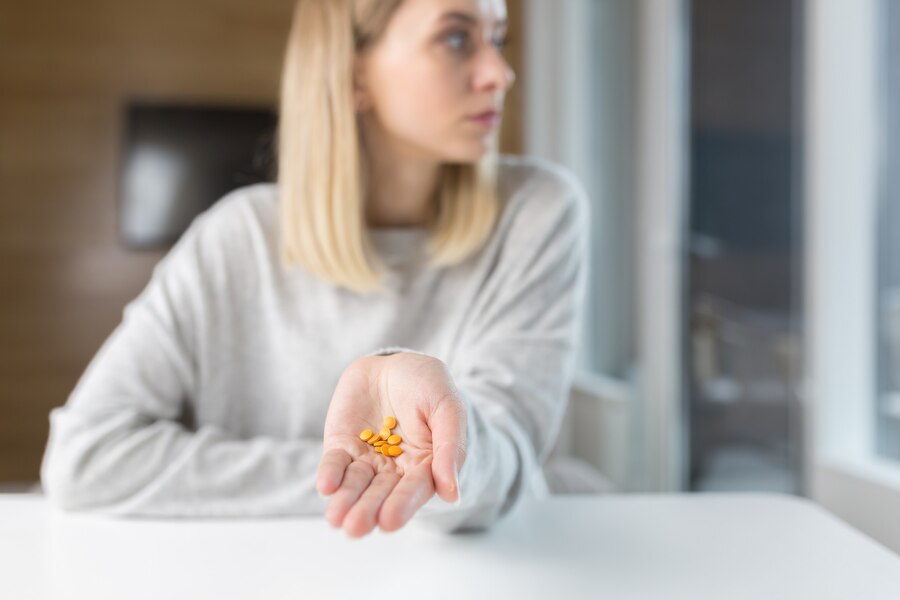Women’s Empowerment: Addiction Recovery for Women in Arlington
Addiction recovery for women in Arlington is a critical area of focus for Couples Rehabs, reflecting a commitment to addressing the unique challenges faced by women in their journey to sobriety. Women’s empowerment in addiction recovery involves creating tailored support systems that address gender-specific needs and foster a supportive environment for healing. Arlington offers a range of specialized programs and resources aimed at helping women overcome addiction, rebuild their lives, and achieve long-term recovery.
The approach to addiction treatment for women emphasizes understanding the complex interplay between substance use and factors such as trauma, mental health, and family dynamics. By providing comprehensive care that addresses these issues, Couples Rehabs aims to empower women to take control of their recovery and build a foundation for a healthier, more fulfilling life.
Contact Us for Professional Services 888-325-2454
Gender-Specific Addiction Treatment Programs
Gender-specific addiction treatment programs are designed to address the unique needs and experiences of women struggling with substance use disorders. These programs recognize that women often face different challenges in addiction recovery compared to men, including societal pressures, trauma, and co-occurring mental health issues.
Programs tailored for women typically include a combination of therapeutic interventions, such as individual and group counseling, and specialized support that addresses issues like domestic violence and sexual trauma. By focusing on the specific needs of women, these programs aim to create a safe and supportive environment conducive to healing and recovery.
Trauma-Informed Care
Trauma-informed care is a foundational approach in addiction treatment for women, acknowledging the significant impact that trauma can have on the recovery process. This approach emphasizes understanding, recognizing, and responding to the effects of trauma, ensuring that treatment is delivered in a way that does not re-traumatize individuals.
Trauma-informed care involves creating a supportive and empathetic environment where women feel safe and validated. This includes offering therapies that specifically address trauma, such as cognitive processing therapy or EMDR (Eye Movement Desensitization and Reprocessing), and integrating trauma awareness into all aspects of treatment.
Support Groups for Women
Support groups for women are a vital component of addiction recovery, providing a space where women can connect with others who share similar experiences. These groups offer emotional support, encouragement, and practical advice from peers who understand the challenges of addiction and recovery.
In Arlington, support groups for women may include 12-step meetings, non-12-step programs, and specialized groups focused on issues such as motherhood, trauma, or co-occurring disorders. Participation in these groups can help women build a network of support, share their experiences, and gain insights into maintaining sobriety.
Family and Parenting Support
Family and parenting support is crucial for women in addiction recovery, addressing the role that family dynamics and parenting responsibilities play in the recovery process. These services aim to strengthen family relationships and provide women with the skills needed to manage their roles as mothers and caregivers while in recovery.
Programs often include family counseling, parenting classes, and support for rebuilding relationships with children and other family members. By involving the family in the recovery process, these services help create a supportive environment that contributes to long-term recovery and stability.

Holistic and Alternative Therapies
Holistic and alternative therapies offer additional approaches to addiction recovery, focusing on the whole person rather than just the addiction. These therapies include practices such as yoga, acupuncture, meditation, and nutritional counseling, which can complement traditional treatment methods.
Holistic therapies address various aspects of well-being, including physical, emotional, and spiritual health. For women in recovery, these therapies can provide valuable tools for managing stress, improving self-awareness, and promoting overall wellness, enhancing the overall treatment experience.
Educational and Vocational Support
Educational and vocational support plays a significant role in helping women achieve long-term recovery by providing opportunities for personal and professional growth. These services include educational programs, job training, and career counseling designed to help women build skills and achieve independence.
By focusing on education and vocational development, these programs aim to support women in rebuilding their lives and achieving their goals. Access to education and job opportunities can be a crucial factor in maintaining sobriety and establishing a stable and fulfilling life post-recovery.
Community Resources and Advocacy
Community resources and advocacy efforts are essential for supporting women in addiction recovery by connecting them with additional services and promoting their needs within the community. These resources may include access to housing assistance, legal aid, and financial support.
Advocacy efforts focus on raising awareness about the challenges faced by women in recovery and working to address systemic issues that may impact their access to services. By leveraging community resources and advocacy, women can receive the comprehensive support needed for successful and sustained recovery.
Customized Recovery Plans
Customized recovery plans are tailored to the individual needs and goals of each woman in treatment. These plans consider factors such as personal history, trauma, co-occurring disorders, and social support systems to create a personalized approach to recovery.
A customized plan may include a combination of therapies, support services, and goals that align with the woman’s unique circumstances. This personalized approach helps ensure that treatment is relevant and effective, increasing the likelihood of achieving long-term recovery.
Aftercare and Relapse Prevention
Aftercare and relapse prevention are critical components of the recovery process, providing ongoing support and resources to help women maintain their sobriety after completing initial treatment. Aftercare services may include continued counseling, support groups, and relapse prevention planning.
Relapse prevention strategies focus on helping women identify triggers, develop coping skills, and build a strong support network to manage the challenges of recovery. Effective aftercare helps ensure that women remain engaged in their recovery journey and continue to build on the progress made during treatment.
Addiction Recovery for Women in Arlington, Virginia
Addiction recovery for women in Arlington involves a multifaceted approach that addresses the unique needs and challenges faced by women. Through gender-specific treatment programs, trauma-informed care, support groups, and a range of additional resources, Couples Rehabs is dedicated to empowering women on their path to recovery. By providing comprehensive and personalized support, these resources help women overcome addiction, rebuild their lives, and achieve lasting sobriety. Reach out today to discover how our tailored programs can support your recovery journey and help you build a healthier, more fulfilling life.
FAQs
-
What specific challenges do women face in addiction recovery? Women often encounter unique challenges in addiction recovery, including body image issues, relationship difficulties, trauma, and hormonal fluctuations. Addressing these specific needs is crucial for successful recovery.
-
How does empowerment play a role in women’s addiction recovery? Empowerment is essential for women’s addiction recovery. By fostering self-confidence, resilience, and independence, women can overcome challenges and build fulfilling lives in sobriety.
-
What are the key components of a women’s addiction recovery program? A comprehensive women’s addiction recovery program includes evidence-based therapies, peer support, holistic treatments, and a focus on personal growth and empowerment. Addressing the specific needs of women is vital for long-term success.
-
How does trauma therapy support women in addiction recovery? Many women with substance abuse issues have experienced trauma. Trauma-informed care is essential for addressing the root causes of addiction and promoting healing.
-
What role does body image play in women’s addiction recovery? Body image issues can contribute to addiction and hinder recovery. Women-focused programs often incorporate body positivity and self-esteem building to support overall well-being.
-
How can women build strong support networks during recovery? Building a strong support network is crucial for women in recovery. Connection with other women in recovery, family, and friends can provide encouragement and accountability.
-
What are the benefits of holistic treatments for women in addiction recovery? Holistic treatments such as yoga, meditation, and nutrition counseling support women’s physical and mental well-being, reducing stress and promoting balance.
-
How can women develop healthy coping mechanisms in recovery? Developing healthy coping mechanisms is essential for preventing relapse. Women’s recovery programs often focus on teaching stress management techniques, problem-solving skills, and emotional regulation.
-
What is the importance of aftercare planning for women in recovery? Aftercare planning is crucial for long-term recovery success. It involves creating a support network, identifying triggers, and developing relapse prevention strategies.
-
How can women find empowerment and purpose after addiction recovery? Empowerment and purpose are essential for sustained recovery. Women can explore personal goals, develop new skills, and contribute to their communities to create a fulfilling life in sobriety.


Recent Comments